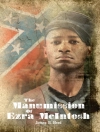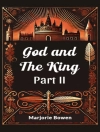In her thought-provoking novel, 'In League with Israel: A Tale of the Chattanooga Conference, ’ Annie F. Johnston masterfully weaves a narrative that delves into the fraught complexities of 19th-century American identity and its relationship with Jewish communities. Employing a rich and evocative literary style, Johnston uses vivid imagery and compelling dialogue to unveil the interactions, tensions, and alliances formed during the Chattanooga Conference. Set against a backdrop of socio-political change, her work reflects the burgeoning discourse on religious tolerance and national unity in a rapidly transforming America. Annie F. Johnston, a prominent author of the early 20th century, was deeply invested in the themes of social justice and cultural integration, which are evident in her oeuvre. Her own experiences and advocacy for various marginalized communities likely informed the lens through which she portrays Jewish-American interactions. By situating her characters in the climactic moments of the Chattanooga Conference, Johnston encapsulates the historical anxieties and aspirations of her time, inviting reflection on the broader implications of these encounters. This engaging narrative is a must-read for scholars interested in American literature, Jewish studies, and historical fiction. Johnston’s nuanced exploration of identity and belonging not only captivates but also stimulates critical dialogue about the intersections of race, religion, and community in American history. Readers who appreciate richly layered storytelling will find themselves immersed in a tale that resonates beyond its pages.
O autorze
Annie Fellows Johnston (1863–1931) was an American author of juvenile fiction, most renowned for her series of books known as 'The Little Colonel Series.’ Born in Evansville, Indiana, Johnston displayed an early passion for storytelling and literature. Her works frequently mirrored her Kentucky upbringing, as seen in the vivid Southern settings of her novels. Johnston’s writing often addressed themes of social mores, character development, and the importance of family, which resonated with her readers, contributing to her popularity in the early 20th century. While 'In League with Israel: A Tale of the Chattanooga Conference’ is less widely recognized than her 'Little Colonel’ books, it remains a testament to her storytelling abilities and her adeptness at weaving plots that appeal to both the hearts and minds of her audience. Her literary style can be characterized as engaging, morally instructive, and heartwarming, aimed primarily at a young audience. Her works continue to be scholarly references for those studying the genre of Southern American literature for young readers (Foster, 2014; Hearn, 2009). Johnston’s influence extended beyond her own writings as she mentored other young authors of her time, leaving a lasting legacy in both the literary world and beyond (Carter, 2001).












